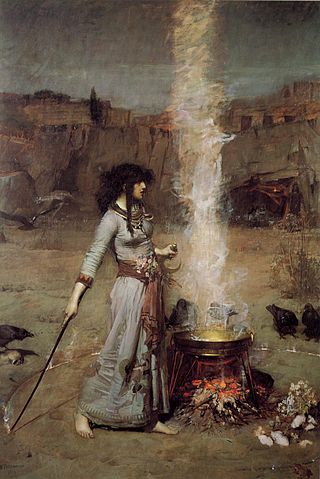Witchcraft vs Sorcery
The main distinction between Witchcraft and Sorcery lies in the motive behind each practice. Those who believe in witchcraft and sorcery claim that witchcraft involves using power for good, while sorcery involves using power for evil purposes. Both traditions require the use of spells and rituals, and involve specific methods such as gathering ingredients for a potion at the appropriate time, like during a full moon.
What is Witchcraft?
Witchcraft is considered the art of utilizing supernatural forces to achieve desired results. Typically, witchcraft is associated with good intentions. Practitioners of witchcraft are called witches (female) and wizards (male), although some people use the term “witch” for both genders. Witches and wizards worship Mother Nature, as they believe their powers originate from her.
To practice witchcraft, one must possess inherent mystical powers. Without these powers, a person cannot become a witch or wizard. Witchcraft practitioners usually form groups called covens, which can be all-male, all-female, or mixed. However, some witches and wizards prefer to practice their craft alone.
What is Sorcery?
Sorcery is also defined as the art of using supernatural forces to gain desired results, but is typically associated with malicious intentions. Practitioners of sorcery are called sorceresses (female) and sorcerers (male).
Unlike witchcraft, sorcery does not require inherent mystical powers. As a result, anyone can practice sorcery. Sorceresses and sorcerers may practice individually or in groups, depending on their preference.
Since sorcery involves evil intentions, sorcerers often find power and peace in worshipping malevolent spirits. Some groups even worship the devil, as their power is dark.
What is the difference between Witchcraft and Sorcery?
• Definition of Witchcraft and Sorcery:
• Witchcraft involves using supernatural powers by those with inherent mystical powers to achieve desired results.
• Sorcery is also the act of using supernatural powers to gain desired results.
• Motive of Witchcraft and Sorcery:
• Witchcraft employs supernatural powers for good intentions.
• Sorcery utilizes supernatural powers for evil intentions.
• Names of the Practitioners:
• Witchcraft:
• The female practitioner is called a witch.
• The male practitioner is known as a wizard.
• Some people use the term “witch” for both genders.
• Sorcery:
• The female practitioner is called a sorceress.
• The male practitioner is known as a sorcerer.
• Ability:
• To practice witchcraft, a person must have inherent mystical powers.
• To practice sorcery, one does not need inherent powers. As a result, anyone can practice sorcery.
• Form of Practice:
• Witchcraft is practiced in covens or individually.
• Sorcery is practiced in groups or individually.
• Worshipping:
• Witchcraft followers worship Mother Nature.
• Sorcery followers worship evil spirits, such as the devil.
• Rituals and Spells:
• Both witchcraft and sorcery involve the use of rituals and spells.
In conclusion, witchcraft and sorcery are different forms of using supernatural powers. While witchcraft focuses on bringing positive outcomes for others, sorcery aims to harm others. Although witchcraft was once considered a taboo and practitioners were punished, modern attitudes towards witchcraft have changed. Today, people practice witchcraft as a religion without interference. Despite scientific explanations, people continue to believe in witchcraft and sorcery, particularly when no logical answer can be found. Thus, both witchcraft and sorcery persist in the world.
Key Takeaways
- Witchcraft is associated with good intentions and requires inherent mystical powers, while sorcery is associated with evil intentions and does not require inherent powers.
- Practitioners of witchcraft are called witches and wizards, while practitioners of sorcery are called sorceresses and sorcerers.
- Both witchcraft and sorcery involve the use of rituals, spells, and supernatural powers, but witchcraft focuses on positive outcomes and sorcery aims to harm others.
